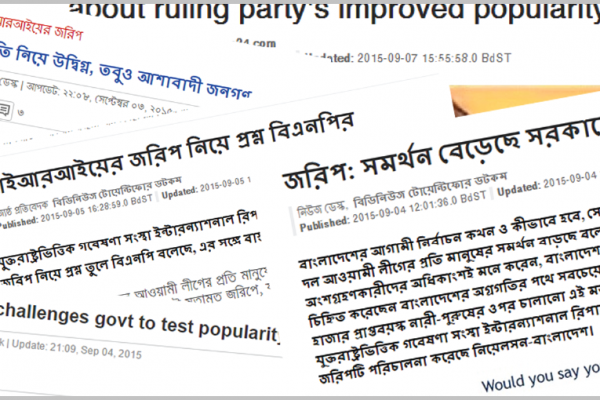The pledge of UN Under-Secretary General Atul Khare to appoint more Bangladeshis to commanding positions in UN Peace Keeping Operations and appreciating Bangladesh’s role in UN peace Keeping is refreshing. Since its inception in 1945, the United Nations (UN) has undertaken the responsibility of establishing world peace and security as prescribed in the UN Charter. Although it is not explicitly mentioned in the Charter, UN peacekeeping has evolved into one of the main tools to achieve this purpose.
Bangladesh’s role in UN peace keeping is applauded by the international community and with the deployment of 9,432 Bangladeshi troops and police (till August 31, 2015) in 10 UN missions, Bangladesh tops the list of peacekeepers-sending countries. Bangladesh as a top Troop Contributing Country (TCC) in the UN Peace Keeping Operation (UNPKO), has been consistently taking part to the cause of peace and security across the globe over the last two decades, especially in Africa.
It is not the first time that Bangladeshi peacekeepers are applauded by the UN. Since the beginning of the participation of Bangladesh in UN Peace Keeping in 1988, Bangladeshi peace keepers have shown impressive performance. With 47 UN missions under its belt, the country is a heavyweight in peacekeeping. From the beginning, the peace keepers are applauded for being very good at conduct and discipline. Their contribution has become an important component of Bangladesh’s foreign policy and the country has attained a good standing in the comity of nations.
Peace keeping mission is a way for Bangladesh to exercise soft power. It’s a way of winning hearts and minds. As such, it improves the country’s image. At most it allows Bangladesh to place its nationals in key positions in international organisations.
At this point, it is vital to know the contributing factors that made Bangladeshi peacekeepers an acceptable and credible UN force in Africa. The major factors are: Bangladeshi peace keepers are highly disciplined and a professional force that maintains International standard vis-à-vis UN standard, they maintain absolute neutrality in discharging assigned duties in various missions, they completely adheres to the given mandate and follow the principle of fair practices in operations. The most interesting fact is that Bangladesh peacekeepers maintain a very cordial relation with the people of the host nations and respect their culture & traditions. The peacekeepers have helped restore tranquility and peace in many war-torn parts of the globe and have ushered in an era of hope in countries which had only known despair and war. In this way, the Bangladeshi uniformed personnel have earned the gratitude of millions in lands. For instance, due to the contribution of Bangladeshi troops, the people of Sierra Leone recognized Bangla language as the second state language in the country.
It is to be noted that, Bangladeshi troops had to face lots of challenges in becoming a model for peace keeping operations. They have gone through many critical situations in number of peacekeeping missions in Africa and elsewhere. We can recall many such instances in Somalia, Democratic Republic of Congo, Sierra Leone, Sudan, Cambodia, etc. Since the peacekeeping missions are often risky in tribal-torn conflicts in Africa, there have been casualties of Bangladeshi peacekeeping troops (nine soldiers) in the Democratic Republic of Congo on 25th February, 2005. As of May 2011, a total of 103 Bangladeshi peacekeepers died for the cause of world peace and 116 wounded.
The excellent performance of Bangladesh peacekeepers in African countries as well as around the world in ensuring peace has increased the credibility of Bangladesh in international arena. Bangladesh has been known as the model of establishing peace and as the peace-loving nation around the world. It has also facilitated huge experience and exposure for our forces. This hard earned reputation should be upheld and focus more on qualitative representation and contribution to reap maximum benefits. This is more important in case of our presence in Africa, which is considered as a Land of Opportunity and where our troops present in large number.
Author: Farhana Syead
Photo credit: MINUSMA via Creative Commons


